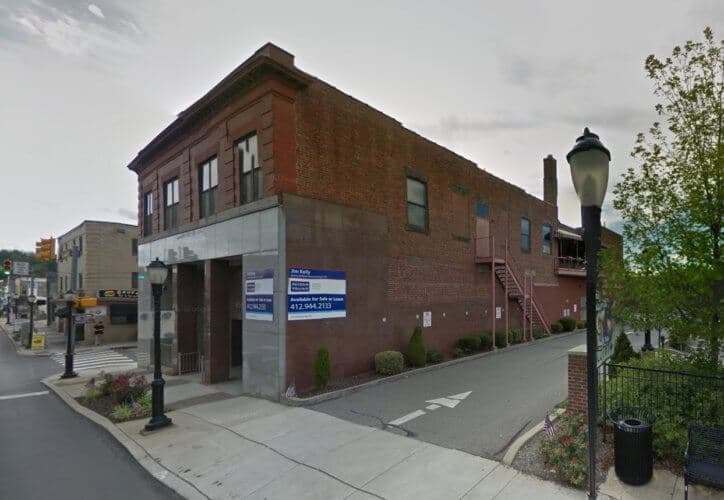
As the application deadline nears for permits to sell medical marijuana in Pennsylvania, some would-be dispensary owners are eyeing Bridgeville as a possible headquarters and retail location.
At least one party has formally asked the borough clarify how a marijuana dispensary would fit into Bridgeville’s business district zoning. Solicitor Thomas McDermott said that the borough is working on a response and declined to specify the exact location in question.
The old PNC Bank building at 456 Washington Avenue has generated inquiries from numerous parties interested in applying for a medical marijuana dispensary permit, said Laura Deklewa, who co-owns the building with her husband, Richard.
None of this necessarily means that Bridgeville will be home to a dispensary when the shops open their doors next year, however.
By the March 20 filing deadline, many hundreds of people are expected to apply for just 25 marijuana dispensary permits that will be issued across the state. Two of those permits will be issued for Allegheny County. One permit each will go to Washington, Butler, and Westmoreland counties. Each permit allows for three dispensaries—a main location in the primary county, and secondary locations in nearby counties.
In the meantime, communities throughout Pennsylvania have been debating how their individual zoning plans should incorporate medical marijuana dispensaries. Some municipalities want to welcome marijuana operations into their retail centers, while other communities hope to limit the facilities to the industrial parts of town.
Applications for dispensaries must include a statement outlining how the business will impact the surrounding community. This is one of the major criteria that officials will consider before issuing permits, according to Philly.com
To ensure that the dispensaries aren’t fly-by-night operations, there’s a $5,000 nonrefundable application fee and a $30,000 application fee that will be refunded if a permit isn’t issued. Applicants also need $150,000 of on-hand capital in the bank.
The dispensaries must meet strict security requirements, including extensive video surveillance and a series of alarms similar to what a bank would have on-hand. That could make the 8,700-square-feet former PNC Bank building a desirable location.
A Morning Call story paints a picture of how a trip to a Pennsylvania dispensary might unfold:
[When] patients walk in the door of their local marijuana dispensary, the first thing they’ll see is a sign warning them they’ve got to be at least 18 years old to enter unless accompanied by an adult.
They’ll walk past video surveillance cameras and into a stand-alone specialty drugstore, where they’ll meet with a pharmacist or other health professional who has completed four hours of training on treatment with medical marijuana.
Finally, after presenting a valid ID that shows they’ve been certified for medical marijuana treatment, they’ll pay in cash for a sealed container of, at most, a 30-day supply of medical cannabis in the form of pills, oils, topical gels, cream, ointment or liquid that can be administered with a vaporizer.
Last year, Pennsylvania became the 24th state to legalize medical marijuana. Because the drug remains illegal under federal law, some marijuana-related businesses find themselves shunned by large banks and payment processing companies. For investors, the long-term upside can be big, but massive pot profits aren’t quick and aren’t guaranteed. Some Illinois dispensaries, which opened in 2015, have experienced growing pains as the numbers of patients haven’t met expectations.